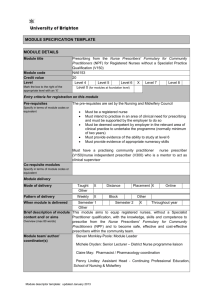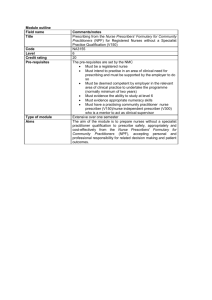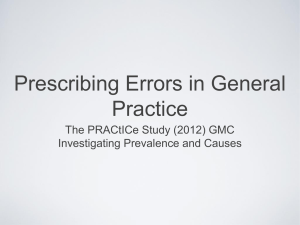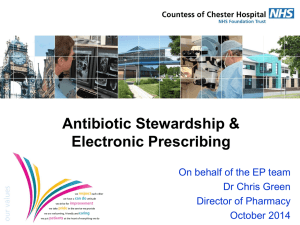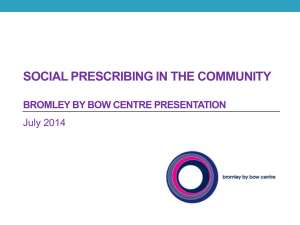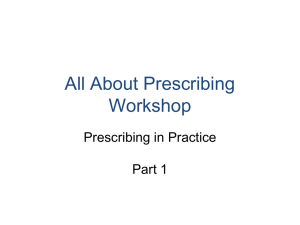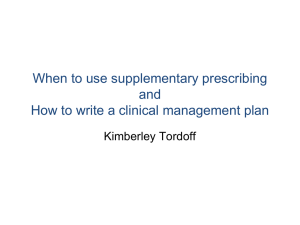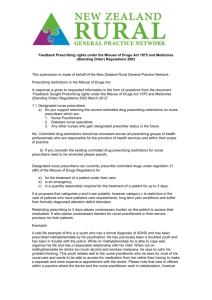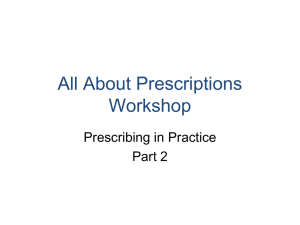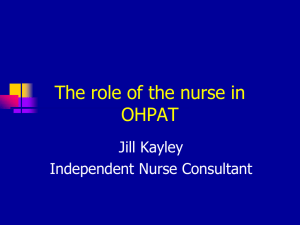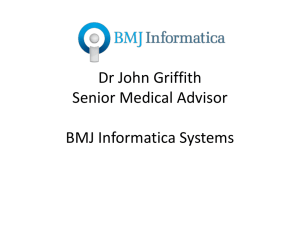Prescribing in Practice
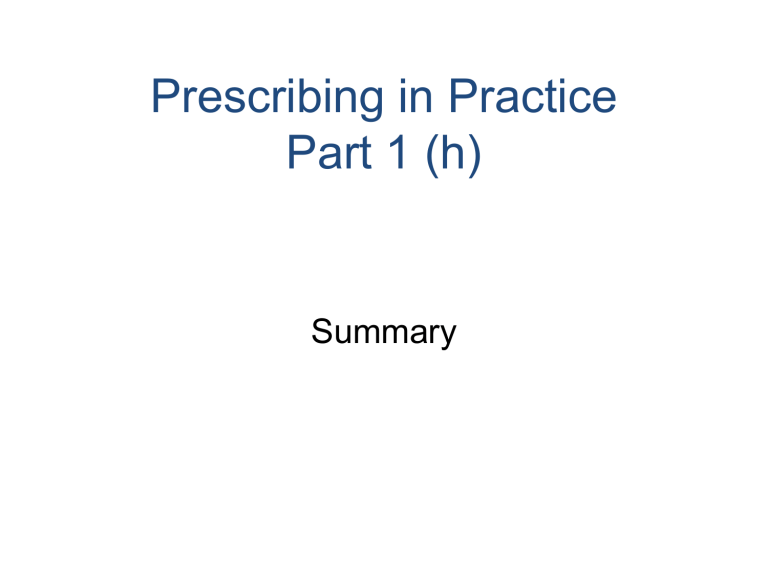
Prescribing in Practice
Part 1 (h)
Summary
Summary
• Before you prescribe it is important to consider the prescribing triangle and principles of good prescribing
• Refer to BNF and NMC standards for legal requirements
• Be aware of potential for fraud
Security of prescriptions
• Is the responsibility of the employing organisation and the prescriber
• Hold only minimal stocks of pads in order to minimise the impact in case of loss or theft
• This also helps when forms are reviewed annually to avoid waste
Serial numbers and loss of pads
• Should be recorded by the employer before issue to the nurse
• Recorded by the nurse to aid identification in case of theft
• Astron should be contacted if there is loss, or ordered pads do not arrive
• NHBSA notified if they are not found
• Inform prescribing lead who will contact counter fraud specialist at the PCT
• They will alert pharmacists and the prescriber will use a different coloured pad until the matter is resolved
Getting your prescriptions
• After completing the course and qualifying as a IP/SP
Prescriber the NMC/HPC/RPSGB will be informed by the university and will then annotate the register to indicate that the NMP can prescribe as either an IP/SP or SP using the BNF.
( This is different from the HV/DN annotation V100)
• The University will also inform the prescribing leads of successful course completion.
• Employers can check professional register to confirm prescribing status
Getting started
• PRESCRIPTION PADS ARE NOT SENT
OUT AUTOMATICALLY.
• FP10 s need to be ordered from the supplier (currently ASTRON) Orders cannot be placed with ASTRON until the
NHSBSA have been notified of the new nurse prescribers details.
• ASTRON will not issue prescriptions unless the NHSBSA details match those given by the organisation requesting prescriptions for a nurse.
Action for employers
• The employer (PCT Prescribing Lead) will then inform the NHS Business Services
Authority (NHSBSA) of the Nurse/AHP
Prescribers details using the proforma available on the NHSBSA website: http://www.nhsbsa.nhs.uk/
(Note hospital based nurses/AHPs do not need to inform the NHSBSA)
Stock items
Items should be prescribed for individual patient use
Over prescribing to stock up the nurses own supplies is illegal.
Security of Prescriptions
• The security of Prescription forms is the responsibility of the Employing
Organisation and the Nurse Prescriber.
• It is advisable to only hold minimal stocks of prescription forms in order to minimise loss in the case of theft or break in, and also helps keep prescription forms up to date. (normally reviewed annually)
Serial Numbers
• Should be recorded by the employer before issue to the nurse.
• Recorded by the nurse to aid identification in the case of theft.
• Blank prescriptions should NEVER be presigned.
Loss of prescription pads
• ASTRON should be contacted about prescriptions ordered but not received.
• NHSBSA should be notified if they are not found.
• Community prescribers should inform the local counter fraud specialist at the PCT, their manager and the Prescribing Nurse
Lead, if they loose or have prescription pads stolen.
References cont.
Latter, S, Blenkinsopp, A, Smith, A, Chapman, S, Tinelli, M, Gerard, K,
Little, P, Celino, N, Granby T, Nicolls, P and Dorer G (2010)
Evaluation of Nurse and Pharmcist Independent Prescribing
University of Southampton and Keele University available at http://eprints.soton.ac.uk/184777/3/ENPIPfullreport.pdf
Medicines and Health care products regulatory agency ww.mhra.gov.uk
Misuse of Drugs Act 1971 www.legislation.gov.uk
Midwifery Council (NMC) (2010) Record Keeping guidelines www.nmc.org.uk
NHS Business Services Authority www.nhsbsa.nhs.uk
The Medicines Act 1968 www.legislation.gov.uk
References
British National Formulary (BNF) www.bnf.org.uk
Cavell GE, and Hughes DK (1997) Does computerised prescribing improve the accuracy of drug administration? Pharmaceutical Journal vol 259, pp782-84
Dean, BS, Schachter M, Vincent, C and Barber ND (2002) Prescribing errors hospital inpatients: their incidence and clinical significance, Quality and Safety in Healthcare December vol 11(4) pp 340-44
Department of Health (DH) (2006) Nurse Independent Prescribing www.dh.org.uk
Department of Health (DH) (2011) Nurse Prescribing Frequently Asked
Questions www.dh.org.uk (accessed 3/8/11
Further reading
Medicinal products: prescription by nurse and others Act 1992 www.legislation.go.uk
Useful websites
Royal Pharmaceutical Society of Great
Britain (RPSGB) wwwrpharms.com
Health Professions Council (HPC) www. hpc-uk.org
This work was produced as part of the TIGER project and funded by JISC and the HEA in 2011. For further information see: http://www.northampton.ac.uk/tiger .
This work by TIGER Project is licensed under a Creative Commons
Attribution-NonCommercial-ShareAlike 3.0 Unported License. Based on a work at tiger.library.dmu.ac.uk
.
The TIGER project has sought to ensure content of the materials comply with a CC BY NC SA licence. Some material links to third party sites and may use a different licence, please check before using. The TIGER project nor any of its partners endorse these sites and cannot be held responsible for their content. Any logos or trademarks in the resource are exclusive property of their owners and their appearance is not an endorsement by the TIGER project.

